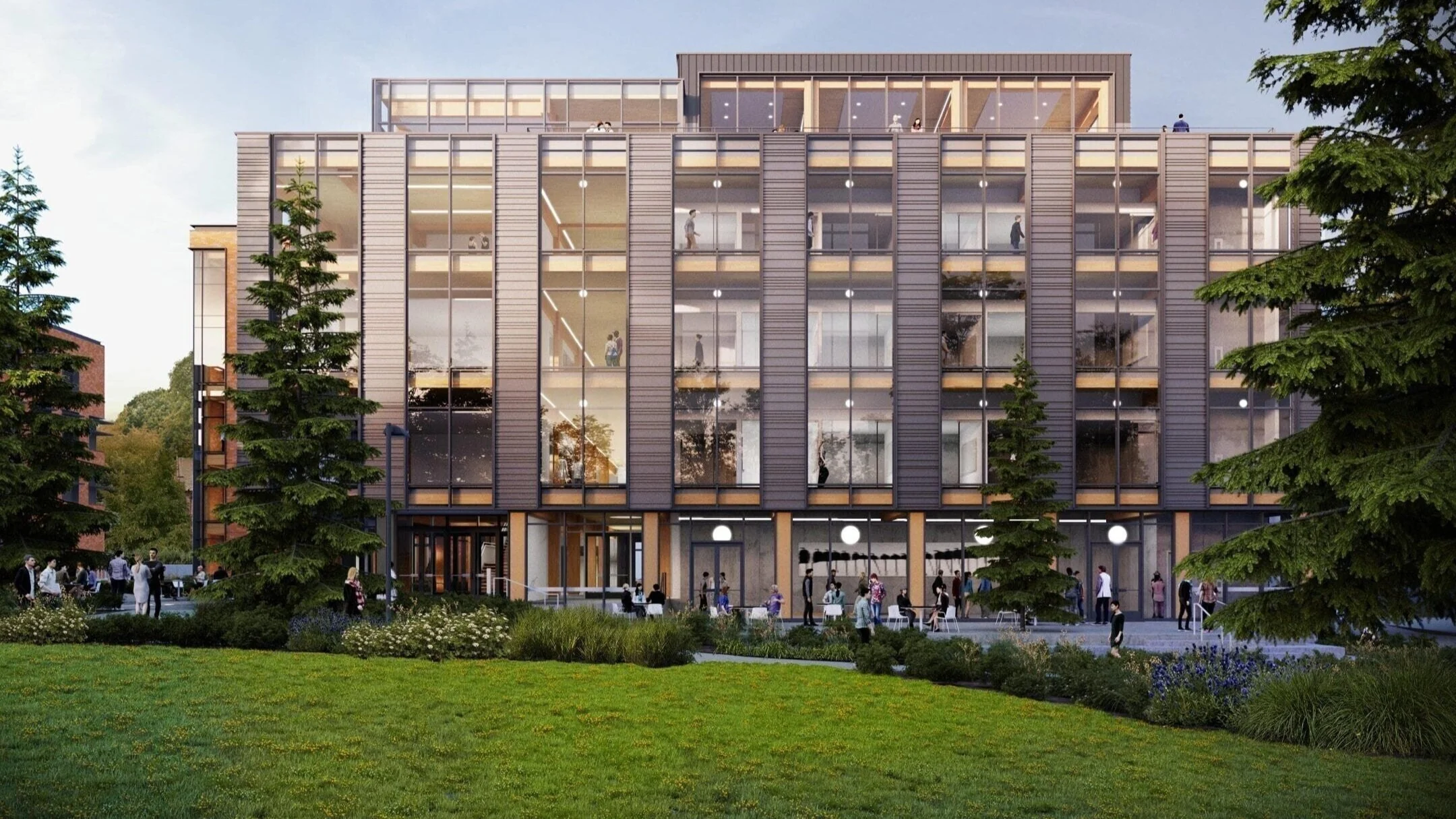Building a Greener Future
Replacing forests with urban settings has always degraded the environment and added to climate change. Instead of fighting the inevitable urban sprawl, architects and manufacturers have banned together with environmentalists to turn commercial construction into a giant carbon sink by replacing steel and concrete with mass timber, a framing style which uses large solid wood panels for construction. An innovative product in the mass timber family is cross-laminated timber (CLT) which is formed from gluing layers of boards together. The benefits of such techniques include lower waste, faster installation, and smaller environmental footprints.
University of Washington Spotlight
In 2022, the Foster School of Business will open Founders Hall which is one of the first buildings in the state to incorporate the new cross-laminated timber. Researchers from the university calculated that the average building constructed with CLT will have a 26.5 percent smaller carbon footprint than a comparable one constructed with concrete. Founders Hall will now be one of the greenest buildings on campus and was designed to achieve a 76 percent reduction in energy consumption over the first 60 years of its life. The new facility will not only look great but will be completed with greater speed due to this eco-friendly choice. Go Dawgs!
Environmental Benefits
As mentioned, mass timber can act as a carbon sink and greatly mitigate the effects of climate change. Andrew Ruff of Gray Organschi Architecture explained that if a typical steel and concrete building has an emissions profile of 2,000 metric tons of CO2, with mass timber you can easily be sequestering 2,000 metric tons instead. This matters because CO2 emissions from the building industry account for roughly 40 percent of global CO2 emissions. The manufacturing of concrete and steel each contribute about 5 percent as well.
Call to Action
Another eco-friendly shift that facility providers are adopting are LEED (Leadership in Energy and Environmental Design) certifications. This status is available for all existing building types and on average consume a quarter less energy while generating 34 percent lower greenhouse gas emissions. We encourage our audience to take advantage of the following LEED-friendly resources when traveling for business or personal reasons:
Oyster: A search function that finds 100% green hotels by location
Marriott and Hilton Accommodations: Luxurious LEED-certified hotels
At RyeStrategy, we recommend opting for LEED-certified accommodations when possible. Now that the construction industry is making the shift towards a more sustainable future, it’s our turn to follow suit. Start here.
Learn about our affordable carbon footprint solutions for small and medium-sized businesses
Book a free strategy session to discuss your climate goals with a sustainability manager.
About RyeStrategy
Based in Seattle, RyeStrategy is a CDP-accredited, mission-oriented company specialized in carbon accounting, mitigation coaching, and climate disclosure solutions for organizations at any point in their sustainability journey. Learn how RyeStrategy helped Salesforce, Ideascale, and Wazoku achieve their sustainability goals.
From exhaustive carbon footprinting and mitigation coaching, to setting science-based targets and reporting climate data to CDP, SBTi or custom reporting platforms, RyeStrategy acts as a hands-on extension of the team, custom-tailoring services to fulfill climate disclosure requirements easily and accurately.
Meet with a sustainability specialist to learn more about RyeStrategy solutions.

